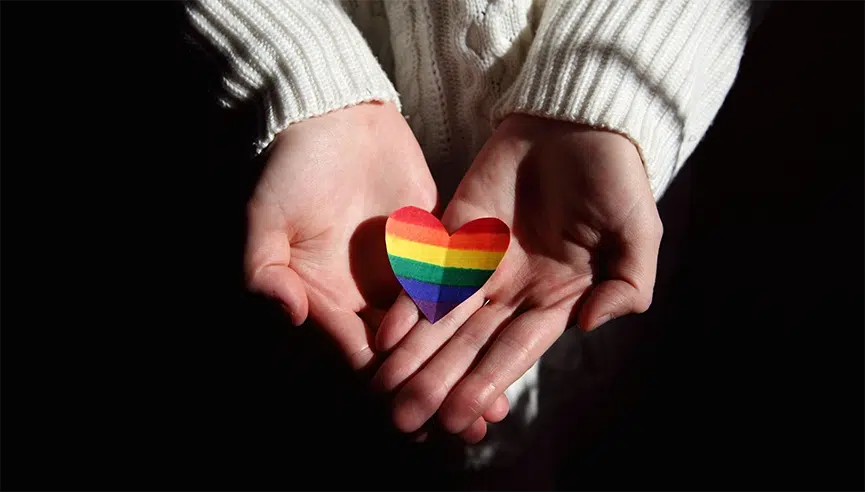LGBTQ Discrimination in the Workplace

Prevalence of LGBTQ Discrimination in the Workplace
LGBTQ workplace discrimination involves treating any employee unfavorably based on their actual or perceived sexual orientation or gender identity, regardless of whether they are lesbian, gay, bisexual, transgender, or heterosexual. Harassing an employee for being gay—even if they aren’t—or because they have a transgender child also constitutes workplace discrimination.
UCLA’s Williams Institute reports there are more than 13 million LGBT people ages 13 and up in the U.S. Sadly, discrimination against this group in the workplace is prevalent.
According to a recent survey by the Center for American Progress, half of LGBTQ adults reported they experienced some form of workplace harassment or discrimination in the past year based on their sexual orientation, gender identity, or intersex status. Many in the LGBTQ community report being:
- Fired from jobs
- Subjected to physical or verbal harassment
- Denied work hours
- Passed over for promotions
Such discrimination has led workers to hide personal relationships, live in remote communities, and experience adverse physical and mental health effects.
Impact of Workplace Discrimination
Workplace LGBTQ discrimination can have many negative impacts on both employees and businesses. For employees, this type of discrimination can lead to feelings of anxiety, depression, and isolation. It can also affect a worker’s ability to do their job effectively. In some cases, LGBTQ discrimination has even resulted in physical violence.
A recent survey from the UCLA School of Law determined that 46 percent of LGBTQ workers have faced employment discrimination. Nearly half of the workers surveyed reported they had received unfair treatment because of their gender identity or sexual orientation, including being harassed at work, excluded from company events, passed over for a job, or denied a promotion.
This unfair treatment can have adverse mental and physical effects on employees. For example, one Canadian study concluded that unsupportive work environments led to poor mental health among LGBTQ people. These problems can be directly related to physical issues like fatigue, headaches, and digestive problems.
Gender or sexual orientation discrimination in the workplace could also severely impact businesses. Studies have revealed that organizations perceived as unsupportive of LGBTQ employees have less job commitment among employees. Other potential consequences for businesses include being unable to access diverse talent, lower productivity rates, and damaged brand reputation, all of which can impact bottom-line results.

How To Know if You Have Seen or Been a Victim of LGBTQ Discrimination at Work?
Workplace discrimination occurs when a person or group receives less favorable treatment than another person or group based on certain protected characteristics or circumstances. Among the protected characteristics are race, color, religion, sex, and disability.
In the landmark 2020 ruling in Bostock v. Clayton County, the U.S. Supreme Court held that Title VII of the Civil Rights Act protects LGBTQ workers from workplace discrimination.
Following the Bostock decision, the U.S. Equal Employment Opportunity Commission released new guidance protecting against employment discrimination based on sexual orientation or gender identity. A federal judge in Texas has since declared the guidance unlawful and vacated it. However, the Supreme Court’s ruling still stands, and employers may still choose to follow the EEOC’s guidance.
Title VII is a federal law that offers protection against workplace discrimination concerning the following:
- Hiring
- Firing, reductions in force, or furloughs
- Training
- Promotions
- Discipline
- Work assignments
- Pay or benefits
- Other conditions, privileges, or terms of employment
Title VII does not protect all employees or job applicants. The law protects employees, former employees, and job applicants regardless of citizenship or immigration status of employers with 15 or more employees. Title VII does not protect employees of businesses having fewer than 15 employees or people working as independent contractors for larger employers.
The number of employees a workplace has determines the anti-discrimination laws an employer must adhere to as follows:
One or more employees:
The Equal Pay Act requires virtually all employers to provide equal pay for equal work regardless of gender.
15 or more employees:
These employers are prohibited from discriminating against employees based on color, race, national origin, sex, including pregnancy, religion, disability, genetic information, gender identity, and sexual orientation.
20 or more employees:
The Age Discrimination in Employment Act prohibits these employers from discriminating based on age.
Knowing how to recognize LGBTQ workplace discrimination is a critical part of stopping it for yourself or others. A few examples of discrimination based on sexual orientation and gender identity include the following:
- An employer offers promotions or raises to workers of one sexual orientation over workers of another.
- An employer gives workers of a certain sexual orientation worse reviews or assignments for no reason other than their orientation.
- An employee is subjected to disparaging remarks, threats, or bullying based on sexual orientation or gender identity.
A workplace free of harassment and hostility doesn’t seem like it should be too much to ask. Fortunately, federal and state laws prohibit discrimination on the basis of things like race, color, sex, religion, national origin, marital status, sexual orientation, and gender identity.
How We Can Mitigate Workplace Discrimination and Create an Inclusive Work Environment
Discrimination in corporate environments is a hot-button HR topic for several reasons. It’s economically harmful to businesses, but more importantly, it’s morally wrong. While navigating these issues can be complex for organizations and workers, employers can and should address them.
Here are several ways businesses can prevent LGBTQ discrimination in the workplace:
1. Develop a Well-Written Policy
The first step in preventing LGBTQ inequality in workplace situations is to create a clear written policy against discriminatory practices. This policy should be part of an organization’s employee handbook, outlining what isn’t permitted and how to handle complaints.
2. Educate Your Workers
Having your policy listed in an employee handbook may not be sufficient. Some state laws require that employers conduct regular anti-discrimination training to educate workers on preventing and handling these situations.
3. Establish a Consistent Process for Resolving Issues
Even if there isn’t a serious legal issue, it’s vital to resolve allegations of discrimination quickly and appropriately. Create clear guidelines instructing how to do this so you maintain the trust of your staff, business partners, and customers.
4. Remove Bias in the Hiring Process
More diverse workplaces are less likely to have issues with discrimination. Businesses can bring more diversity into the workplace by removing bias from the hiring process. Some tips for this include using blind resume screening and standardized interview questions.
5. Conduct Regular In-House Audits
Employers should conduct regular in-house assessments of workplace policies and procedures to ensure anti-discrimination measures are appropriate and effective.

How Fellow Employees and Managers Can Help
Even if you’re not in a leadership position, you can play a role in preventing workplace discrimination against LGBTQ employees. People notice how their direct managers and fellow employees act in the workplace. Some helpful tips include:
- Remain professional in your speech and conduct.
- Refuse to participate in or condone harassment or discrimination.
- Avoid humor that targets LGBTQ groups or individuals.
- Take workplace discrimination training seriously.
- If you witness or experience inappropriate behavior, report it immediately.
How To Respond to LGBTQ Discrimination in the Workplace
If you believe you are being discriminated against or harassed because of your actual or perceived LGBTQ status, follow these steps to protect your rights.
1. Document Everything
Document everything related to workplace discrimination. Save all relevant texts, emails, notes, or other documentation that can help prove what is happening.
2. Speak Up
If you feel safe doing so, speak up to try to solve the problem with a co-worker or immediate supervisor. You may need to escalate the matter to your human resources department or union representative for a resolution.
3. Seek Help
If you have experienced employment discrimination based on your gender identity or sexual orientation, you have legal rights. It may be in your best interests to report the matter to the EEOC and consult with an employment law attorney immediately.
4. Get Support
In addition to seeking legal guidance, you'll want to get additional support to help you through this challenging time. Consider seeking counseling, seeing a medical professional, or confiding in trusted friends and co-workers.
How To Report Workplace Discrimination
If you’ve been the victim of LGBTQ workplace discrimination, follow your company’s guidelines for reporting the problem internally. While state laws offer varying protections to LGBTQ employees, federal law forbids most employers from discriminating on the basis of gender identity and sexual orientation.
If you believe your employer hasn’t handled the matter appropriately, you may also wish to file an EEOC complaint and contact an employment law attorney. In most cases, you must report the violation to the EEOC within 180 days of the alleged incident. An employment law attorney can fight for your rights and even pursue just compensation for the harm you’ve suffered.
Once you file a complaint with the EEOC, the agency will investigate the matter, which could take several months. Retaliation against an employee who files a charge of discrimination is illegal and would expose your employer to even greater liability. A knowledgeable employment law attorney will be experienced with LGBTQ professionals’ issues and can guide your case to the most positive possible conclusion.

